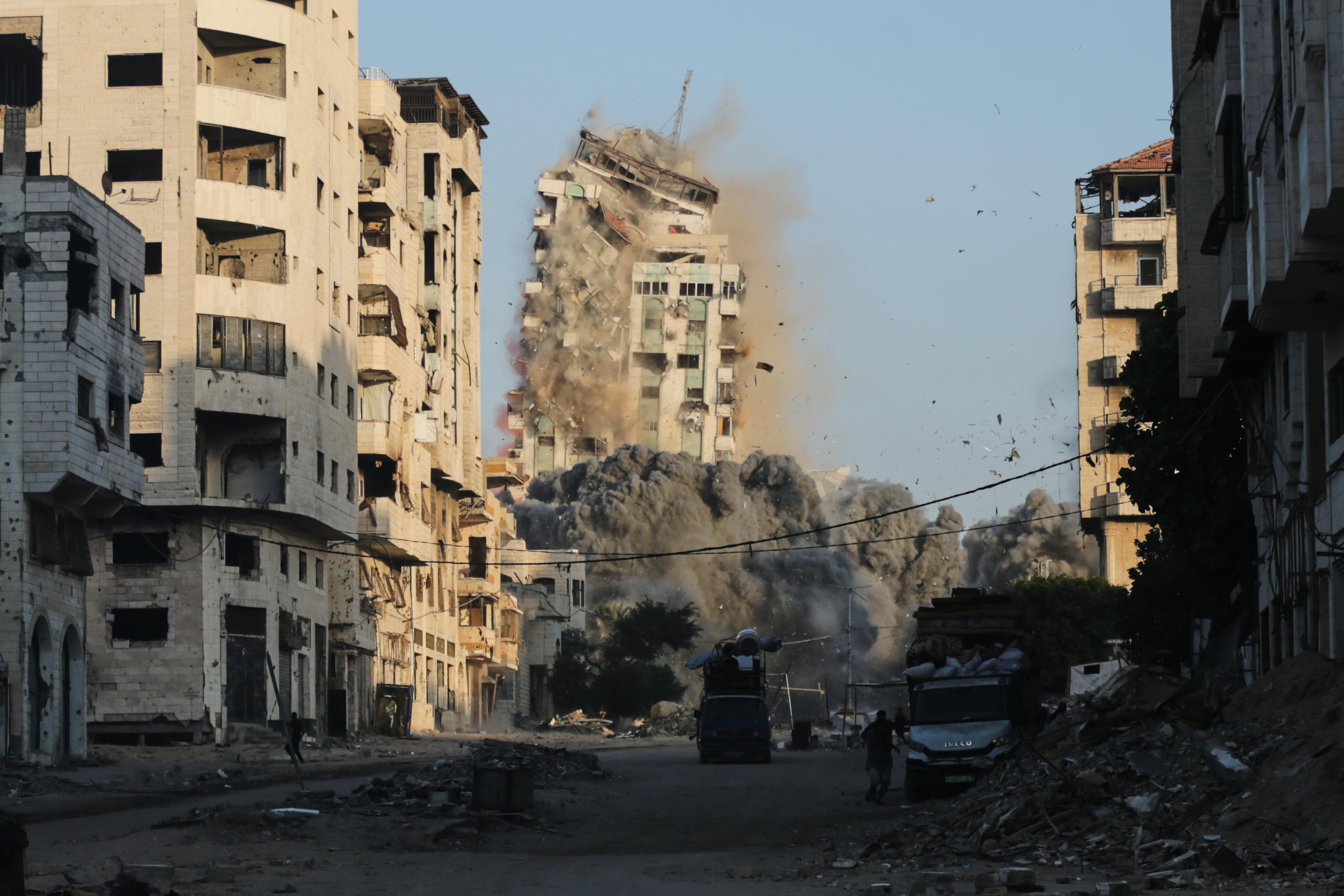Spain has decided to join the coalition of 34 countries, led by the so-called Group of The Hague and spearheaded by South Africa and Colombia, to impose new economic sanctions and end Israel's "impunity" for its offensive in Gaza. In the context of the UN General Assembly, the Spanish Government has also decided to join the donor group to finance the Palestinian Authority, alongside countries like France, United Kingdom, and Saudi Arabia.
"The choice each government faces is clear: complicity or compliance with international law," reads the statement from the Group of The Hague. "History will judge us not by the speeches we make, but by the actions we take."
The initiative was announced as a counterpoint toBenjamin Netanyahu's speech at the UN General Assembly, following a collective protest where dozens of delegations left the room amid jeers against the Israeli premier for his military offensive that has resulted in over 67,000 deaths, according to estimates from the Gaza Health Ministry.
The coalition of 34 countries (which also includes Brazil, Mexico, Chile, Ireland, and Turkey) has announced a range of legal and economic measures as part of "the global response to Israel's constant crimes." The statement emphasizes the need to "establish a model for all states to fulfill their international obligations."
The Palestinian Ambassador to the UN, Riyad Mansour, attended as a guest at the Group of The Hague meeting and stated that the measures promoted by the coalition will serve as a "turning point" for the international community to demand "accountability" from Israel.
Among the proposals that the coalition of 34 countries aims to implement are the prohibition of military exports to Israel (and of stopovers in its ports for shipments from third countries), the termination of public contracts with institutions supporting "the occupation," and the demand for an end to Israel's "impunity" before the International Court of Justice.
The signatories also propose energy embargoes and other reprisals if the Israeli government persists in its disregard for the international community. The coalition members acknowledge that the measures will be "binding" and not "optional" in any case.
The creation of the coalition marked the conclusion of the eightieth session of the UN General Assembly, officially ending on Monday and characterized by the recognition of the State of Palestine by France, the United Kingdom, Australia, Canada, and Portugal, among others. A total of 155 out of the 193 UN member states have now recognized Palestine as a state, including four of the five permanent members of the Security Council (excluding the United States).
The gathering in New York also served to consolidate the establishment of the so-called Emergency Coalition for Financial Sustainability of the Palestinian Authority, which Spain has also joined with an initial contribution equivalent to 145 million euros to finance the Palestinian Authority.
Saudi Arabia is the main driver of this group, mainly composed of European countries and Japan, to "preserve the ability to govern, provide essential services, and maintain security" for the Palestinian Authority, which controls the "non-occupied" areas of the West Bank.
The Palestinian Authority is facing an urgent financial crisis due to the "economic strangulation" imposed by Israel since the start of its offensive in Gaza (in response to Hamas terrorist attacks on October 7, 2023, resulting in 1,195 deaths and 250 hostages).
The partners of this second coalition justify financial support to the Palestinian Authority as "an investment in peace, stability, and security for Palestinians, Israelis, and the entire region," as well as a necessary step towards advancing the two-state solution.
The 12 members, however, acknowledge that short-term aid "is insufficient" and invite other countries and international financial institutions to "mobilize resources and support ongoing governance and economic reforms" to prevent the risk of a collapse of the Palestinian Authority.
